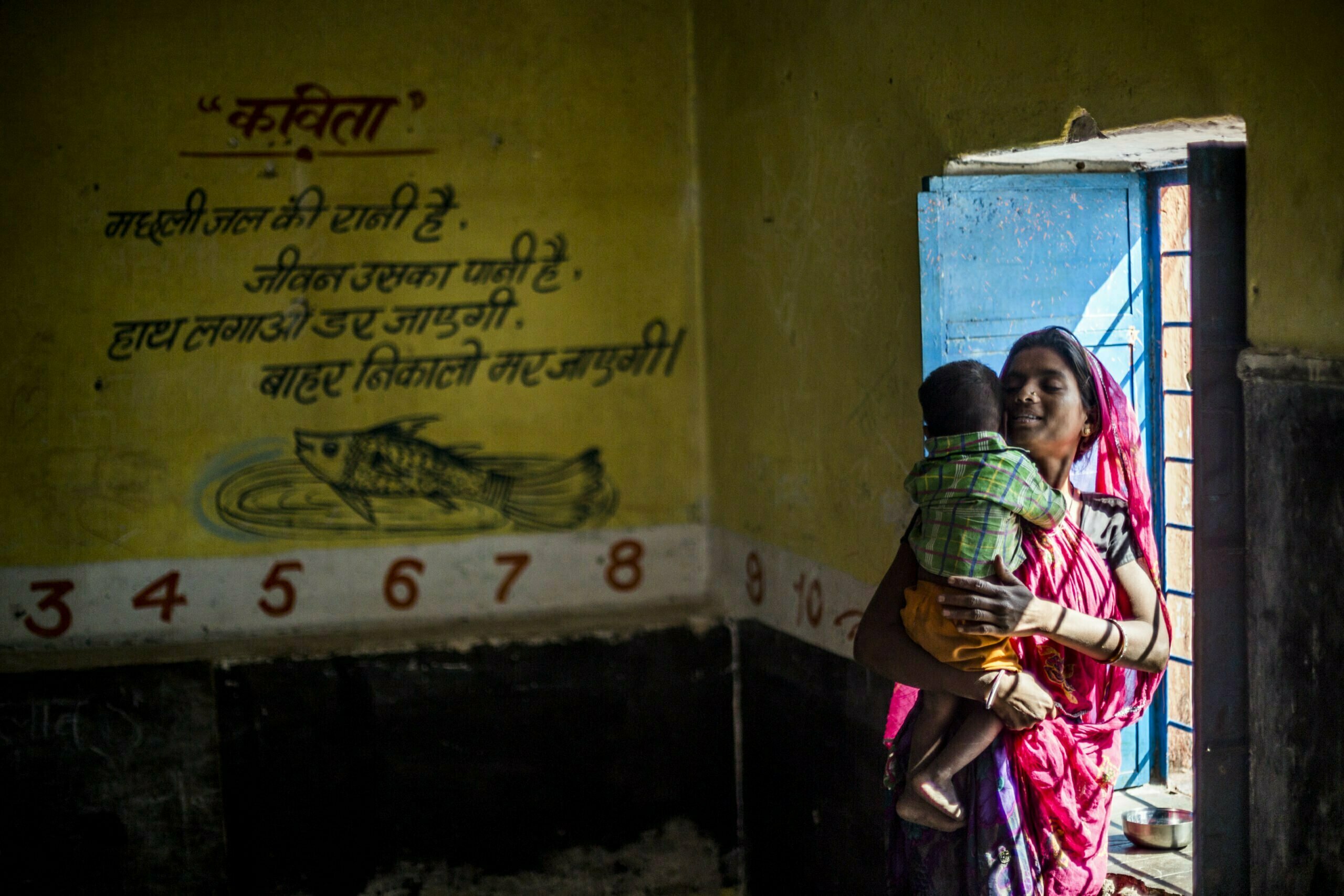The National Family Health Survey (NFHS) is a large-scale, multi-round survey conducted in a representative sample of households across India. It provides a comprehensive overview of the health and nutrition indicators of India’s women, men, and children. The 5th round of this survey was conducted between 2019 to 2021.
As a program dedicated to improved maternal nutrition for reduced instances of low birthweight and wasting among children, RajPusht works towards improving the following NFHS-5 indicators:
1. Women whose BMI is less than normal
2. Prevalence of anaemia among pregnant women
3. Under-5 stunting, wasting, underweight
There are remarkable improvements across almost all the above maternal and child health indicators in NFHS-5 versus NFHS-4 in the state. Figure 1 shows the degree of change between the two rounds for India and Rajasthan, with the latter outstripping the former by more than 5 percentage points in all indicators except prevalence of anaemia among pregnant women.
We also note that while anaemia among pregnant women has increased for India, it has reduced for Rajasthan by 0.5% points between the two rounds.
On ranking Rajasthan’s districts on their composite performance in the above indicators, we find that the concentration of contiguous bottom districts has moved eastwards in NFHS-5.
Other salient shifts between NFHS-4 and NFHS-5 for Rajasthan are as given below:
• Women with self-operated bank accounts increased from 58.2% to 79.6%
• The total fertility rate declined from 2.4 to 2%
• Institutional births increased from 84% to 94.9%
• Mothers receiving post-natal care visits increased from 63.7% to 85.3%
• Children with anaemia have risen from 60.3% to 71.5% in Rajasthan
